Since George Floyd was killed, the curtain has been pulled back for everyone who has the privilege of experiencing a different reality, forcing the acknowledgment that something is wrong. Horribly wrong. Recent events have registered widespread outrage, affecting people of all different backgrounds and inspiring them to speak up and take action.
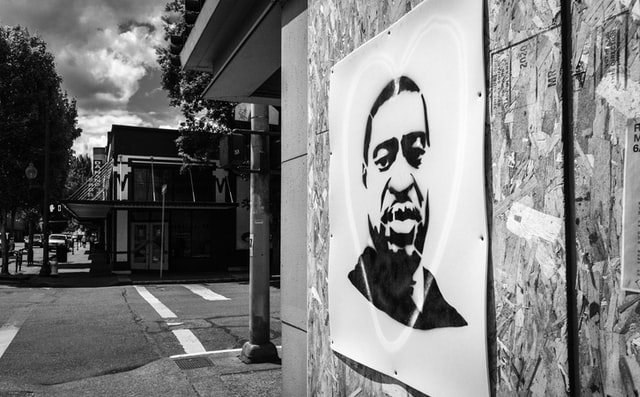
The conversation has grown beyond police brutality as people consider what it means to walk through this world as someone whose life is valued differently. Which, in advertising, is about opportunity, parity, agency culture, representation, systemic racism, "evergreen" racism, and microaggressions (a.k.a., "death by a thousand papercuts").
I've watched with great interest as the advertising industry has responded to these issues, feeling out their roles and responsibilities, managing the optics, and talking about what we can and should do as individuals and organizations.
While people have been moved by the blatant injustice, there are different opinions on how to respond. Those who reacted quickly might as easily have been viewed as opportunistic as they were brave. Others continue to speak loudly through their silence.
“...while most people in our industry seem progressive, it’s in moments like these that it’s revealed to us that many actually uphold conservative views or superficial stances by choosing to remain silent and declining to take action in our work and workplaces. Jumping on the bandwagon for our clients and for our own social reputations is dishonest and disingenuous when internally, we’re still abetting the problem.”
—Terry Lee (in Adweek)
Here are some agencies I’ve noticed making clear statements about George Floyd or supporting Black communities on their websites:
More importantly, these 30 agencies have committed to publishing their diversity data, which is a critical step in the process of moving toward substantive change. Many agencies have also committed funds to organizations working for racial justice. Others have said they will direct more resources to diversity and inclusion initiatives, indicating plans for greater accountability.
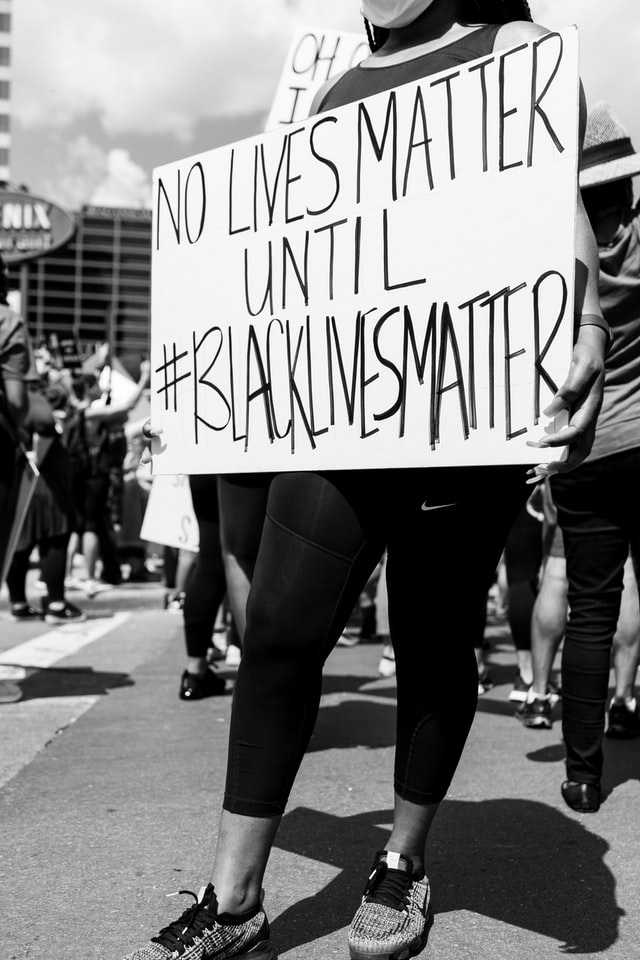
While listening, reading, and taking everything in, here are some of the questions I’ve been thinking about:
- What is an agency's responsibility to respond to current events and to work towards better diversity, equity and inclusion (DE&I)?
- Why do some regard the statement "Black Lives Matter" as controversial? Will taking a stand cost agencies business? If it does, is it business they would want anyway?
- Why do some organizations feel compelled to speak up for #BLM and reinforce their commitment to diversity right now, even when it may not authentically represent their position?
- Where does the responsibility lie for pushing greater diversity and inclusion: with the brand, the agency, or everyone?
- What is the new business cost to agencies rejecting progress toward diversity and inclusion?
- The current conversation arose from Black lives not being equally valued. With that in mind, how can we keep Black professionals centered in discussions and actions toward diversity and inclusion (rather than falling back on advancements that benefit only some while continuing to exclude Black talent)?
Perhaps you've considered some of the same questions. I've shared my thoughts on some of these topics below.
Diversity & inclusion for new business
It is a fact that diversity has become a more influential, if not a deciding factor, for agency new business in recent years. Depending on whose business you want to earn and what consumer groups you need to target, a lack of diversity can stunt an agency's growth. For those who are somehow unmoved to action by anything else, know that diversity and inclusion do affect the bottom line.
We previously tackled many questions around "why diversity matters" for agency new business in this post. Mark Duval (founder of The Duval Partnership) has said diversity is "just something you do because it's the right thing to do." In an ideal world, that might be enough.
Being more skeptical of others' ability to realize the moral imperative (and the spirit of employment protections), I like to provide evidence of why diversity matters for business. A significant body of research supports the bottom-line rewards for businesses taking a progressive approach to diversity and inclusion, some of which can be found here.
Should agencies take a position on racial justice and commit to better diversity and inclusion?
Black lives matter to us at The Duval Partnership. If someone disagrees with that fundamental human rights statement, we are happy not to work with them. It is important to us that we hold ourselves and our agency partners accountable for authenticity and inclusivity in our day-to-day work, specifically as it affects agency new business.
Many in the advertising world seem to believe all agencies "must" or "should" commit to diversity and inclusion, if not to racial justice more broadly. But looking around, most agencies have been able to get away with exclusivity and lack of diversity at the leadership level, meaning they continue to be profitable while doing business that way. A lack of diversity doesn't seem to hurt them in any tangible way, allowing them to continue maintaining the status quo.
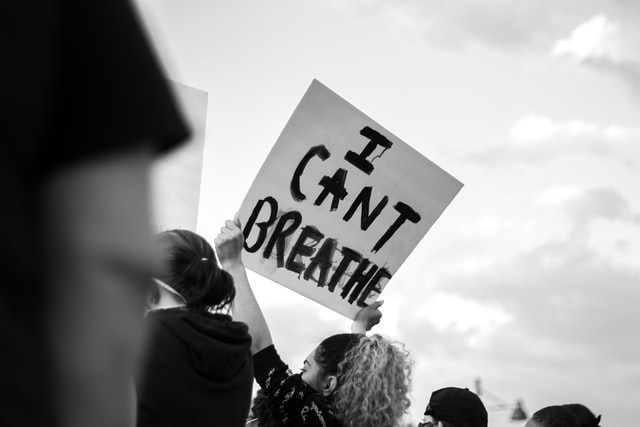
Discussions of diversity and inclusion in advertising have been had so often that it seems like deja vu. Agencies have said they would "take this seriously" and promised to "do better" before. Until there are proven outcomes, these are just PR exercises.
Should "credit" be given to agencies who talk about fixing something they shouldn't have enabled in the first place? Particularly when it may provide a false sense of resolution, followed by further lack of substantive change? The ball is in the agencies' court to demonstrate their commitment with actions.
What about agencies that want to benefit from diversity without practicing it?
I'm not just talking about the agencies that claim to support racial justice on social media despite its incongruence with their actions (though that's a problem, too).
For a recent article about how Black professionals experience racism and microaggressions at advertising agencies, AdAge spoke with five people previously employed with GMMB. All of them agreed that when the agency pitched new accounts, employees of color were asked "for their bios and headshots to send in with their response to the RFP or pitch in question, to make the agency look more diverse." However, they said, "Black employees will rarely ever actually get the chance to work on the pitch or account if won."
Is that an isolated practice? Yadira Harrison and Shannon Simpson Jones of Verb Agency have also alluded to something similar taking place in pitches. If agencies are abusing the pitch process by creating artificial team line-ups based on race, it's not only deceptive—it's racist. It's not the same as using your "A Team" to pitch when your "B Team" will be doing the work (which is also poor practice). Trotting team members out based on how they look just to win new business is tokenism at its worst. It's one step away from hiring actors and models to fill seats on a pitch just because they have a certain "ethnic" look. Where do we draw the line?
If agencies want to enjoy the rewards of diversity, they should earn it. If an agency has to resort to tricks to appear more diverse, they have demonstrated awareness of a problem. Why not address it head-on by extending legitimate opportunities to Black creatives and other creatives of color? And if agencies don't want to be diverse and inclusive, maybe they shouldn't go after the accounts that require it.
“Often agencies say they can’t find diverse talent, but as soon as the client says you have to have 20% diversity, we can suddenly find them,”
—Nathan Young of Periscope (in Adweek)
What will it take for agencies to get on board with substantive change?
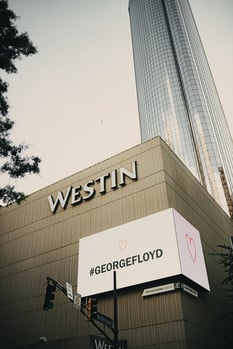 Change will come if brands continue down the path forged by Diageo, HP, Verizon, and General Mills, refusing to do business with agencies that don't meet their baseline diversity requirements. When brands force agencies' hands, and it translates to lost opportunities, agencies may find a greater appreciation for diversity and inclusion as a business imperative.
Change will come if brands continue down the path forged by Diageo, HP, Verizon, and General Mills, refusing to do business with agencies that don't meet their baseline diversity requirements. When brands force agencies' hands, and it translates to lost opportunities, agencies may find a greater appreciation for diversity and inclusion as a business imperative.
More consumers are directing their purchasing power toward brands whose politics align with theirs. Brands have been called out for shallow, opportunistic support for #BLM while their actions contradicted their words. As a result, we may see more brands holding agencies accountable for diversity and inclusion in response to consumers holding them accountable.
Current and former employees are also holding agencies accountable publicly. While I have not heard of any legal actions yet, the thought of it must be a motivating factor for agencies to respond.
“I don’t think they have a real drive [to change]. I think right now they are being forced to have a drive. They have had the data. This is not new. The change is going to come because the change is going to be demanded, but not because it’s something they felt they should do.”
— Deadra Rahaman of Society Redefined Consulting, on general-market agencies (in AdAge)
I, too, am skeptical about substantive change occurring without agencies being forced. And not necessarily because people don't care about equality, diversity, and inclusion. Some don't. But I suspect that, more often, good intentions are stymied by priorities around resource allocation. How long do we accept that before admitting that good intentions aren't good enough anymore?
Getting to the heart of the issue
The real challenge is that agencies don't just face hiring and pipeline issues but equity issues embedded in agency systems and cultures. Those who focus on hiring and pipeline underestimate the problem. The hard work comes with unpacking why team members leave. Why aren't they being retained and promoted?
Hiring someone is easy enough—assuming you have the budget to do so post-COVID. Doing the work to create an environment where a diverse workforce will thrive is much harder. For many agencies, that will require a cultural shift. As an example of what that might look like, refer to this post from Sam Haskin at Firewood.
Visibility is relative to one's perspective. That's something we deal with constantly in our work at TDP. It's a delicate art convincing smart, creative people — leaders in their field — that something that looks fine to them may not look fine from a prospect's perspective. It requires them to doubt their own instincts and trust that there are other valid ways of seeing things. It doesn't come naturally to most people.
Likewise, racist and divisive practices often go unseen by those perpetuating them. Agency leaders must first understand how racism is experienced by those who experience it to acknowledge it and stamp it out. Assuming that we've done no harm because we intended no harm can lead to dismissals of experiences (which, ironically, perpetuates harm).
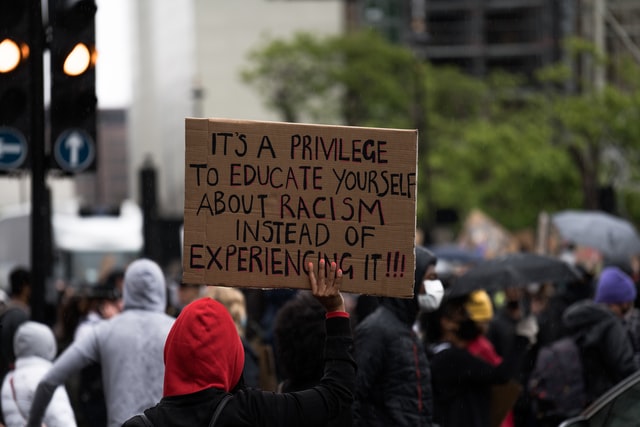
Be accountable for doing what you can
How many agencies have the resources to address racial equality from a best practices approach? For years, we've written about how agencies are being stretched thinner and thinner, continually having to do more with less. It's doubtful many agencies have time to tackle anything without an immediate bottom-line impact.
The question is, do agency leaders view DE&I as having an immediate bottom-line impact? And where will the resources to support DE&I initiatives come from?
If your agency can't approach diversity and inclusion with adequate resources, what then? If the choice is to do nothing or do what you can, choose the latter. You can make incremental improvements without a significant financial investment. And a genuine, ongoing commitment at the highest levels of leadership can go a long way.
What can you do? Here are some ideas:
- Don't just hire from your existing team members and network. Go out of your way to seek out candidates of different backgrounds in your searches to fill jobs and gigs. Professional trade associations can be a resource, as can LinkedIn (try searching with the hashtag #c0ffe3.
- Connect with and call on specialist agencies owned by women, LGBTQ, and people of color. Consider partnering with them when appropriate, and don't just think of them for "urban/multicultural" projects.
- Deliberately network with professionals that have different backgrounds than your own.
- Beware the silo. If you acknowledge that your agency already lacks sufficient diversity, use caution when looking within your agency for answers to resolve its diversity issues. Your team will miss considerations that are beyond their experience.
- Use your people resources. Welcome all voices and perspectives to the table, and don't use majority rule, tenure, or titles to invalidate their ideas.
- Compensate people for their expertise in improving your diversity and inclusion efforts. Respect that educating others about how racism and exclusion is experienced is not necessarily the responsibility of those who experience it— and is also emotionally exhausting.
- Continue to read from various sources and seek out different voices beyond your usual circle. Push yourself out of your comfort zone to understand other perspectives.
- Look at how your agency approaches diversity, equity and inclusion (DE&I).
- Many agencies' highest-ranking Black professionals are found in diversity and HR positions. Is DE&I the only path for them to advance within your agency? Is DE&I incorporated as a core business interest across the agency, integrated and prioritized from the top down, or is it a disconnected island?
- Consider whether there is room for BIPOC (Black, Indigenous, People of Color) talent to be authentic within your agency culture. Revisit dress codes and cultural norms for bias. Does advancement require BIPOC professionals to "code shift" and create professional alter-egos to mirror agency leadership's culture and behaviors at the expense of their own?
- Read the 12 steps 600 Black advertising professionals have demanded agency leaders implement, and start thinking about what your agency can do to meet them.
- Before touting your agency's DE&I creds as a selling point, take an objective look at whether you are ready to do so. Do you have the staff, leadership, and programs to support your positioning?
Resources
- Check out the video series from the 4A’s and Natasha Bowman on Cultural Competence in a Virtual Workplace here.
- Reference Anika Grant’s open-source list of Black owners of all kinds of companies—from creative to lighting to venues ( via Adweek).
- Use tools like Catalyst’s Bias Correct to learn about intersectional gender bias in your agency’s language. Consider the impact of racialized language you may be using.
Further reading
Here are some articles I’ve found impactful recently:
- Black professionals describe agencies as hotbeds for racism and microaggression, by Lindsay Rittenhouse (AdAge). AdAge interviewed 26 people for this article. Read it to better understand how Black creatives experience agency life.
- Verb Agency founders Yadira Harrison and Shannon Simpson Jones discuss client and agency accountability (Ian Zelaya in Adweek). Read this for Yadira and Shannon's insights on creating an inclusive culture to retain a diverse workforce. See what they have to say about not pigeonholing Black-owned agencies into one box, as if they are interchangeable and can only be tapped for urban, diversity, and culture-based projects.
- Advertising has rebranded diversity, and it isn't a positive change, by Belinda Smith, Global Head of Media, Electronic Arts (World Federation of Advertisers). This post talks about how diversity has been co-opted (specifically, and most often, by white women) and how it feels to be a BIPOC in an inhospitable agency culture.
- If 'Black Lives Matter' to brands, where are your black board members?, by Mark Ritson (MarketingWeek). Mark clearly has the freedom to give zero fucks, and he's getting maximum mileage out of it in this brutally honest assessment of where brands sit relative to the lip service they give on BLM. Agencies should care because some of them helped craft the creative he's eviscerating, and many of them know that their leadership teams look every bit as white as the brands that Mark is calling out here.
- Who should lead discussions on racial justice, diversity and inclusion? (Monica Marie Zorrilla in Adweek). Many conversations about DE&I in the advertising industry somehow occur without including BIPOC. In this case, Cindy Gallop (who is half-Chinese) got caught in the cross-hairs. Though many thought she made good points, the conversation hit a nerve for some because she (subjectively) presents as white and attempted to speak for other people of color. See how Black advertising leaders responded.
I hope this gives you some ideas to consider. If you want to add to this discussion, please leave your comments below, or reach out to me here.
Image credits: George Floyd art Photo by Simon Daoudi on Unsplash; No Lives Matter Photo by Lan Nguyen on Unsplash; Photo by Cooper Baumgartner on Unsplash; Westin George Floyd Photo by Joe Yates on Unsplash; Privilege Photo by James Eades on Unsplash.



